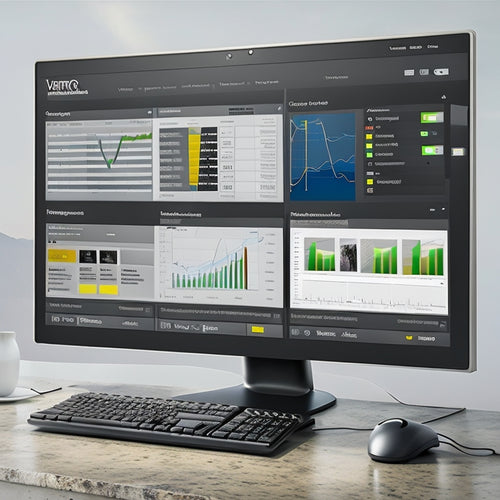
Unlock Online Business Success With Payment Optimization
Share
You've invested in building a solid online business, but a subpar payment system is holding you back. A strong foundation is key, with a secure website, shopping cart, payment gateway, and merchant account. Next, fine-tune your payment processing by accepting multiple payment types, implementing fraud prevention, and incorporating digital wallets. Streamline the customer experience with seamless payments, prioritizing security and PCI DSS compliance. Without a well-optimized payment system, you'll continue to lose revenue and frustrate customers. By fortifying your payment infrastructure, you'll reveal the full potential of your online business - and discover the key to revealing even greater success.
Key Takeaways
• Fine-tune your payment processing system to accept multiple payment types and reduce friction during checkout.
• Implement fraud prevention measures to prioritize payment security and build customer trust.
• Streamline the checkout process with digital invoicing and securely stored payment information.
• Prioritize PCI DSS compliance to ensure a secure payment environment and avoid costly penalties.
• Optimize payment processing to maximize conversions, minimize cart abandonment, and drive revenue growth.
Building a Strong Foundation
As you lay the groundwork for your online business, establishing a solid foundation by incorporating the four essential components is vital: a website, shopping cart, payment gateway, and merchant account.
This foundation is necessary for facilitating secure transactions and providing payment diversity to your customers. A website serves as the storefront, while a shopping cart enables customers to select products. A payment gateway securely processes transactions, and a merchant account holds the funds.
Optimizing Payment Processing
To maximize conversions and minimize cart abandonment, you must fine-tune your payment processing system to accommodate diverse customer preferences and needs.
A well-optimized payment processing system is essential to your online business success. Consider accepting multiple payment types, including credit cards, PayPal, and digital wallets, to cater to different customer preferences.
Implementing fraud prevention measures, such as address verification and card verification values, can reduce fraudulent transactions and increase customer trust.
Additionally, incorporating digital invoicing features can simplify payment processes and reduce administrative tasks.
Streamlining Customer Experience
By offering a seamless payment experience, you can greatly reduce friction and anxiety during checkout, leading to higher conversion rates and increased customer satisfaction.
To achieve this, prioritize payment security, ensuring your customers' sensitive information is protected. Implementing PCI DSS compliance and secure customer data management will help build trust and loyalty, ultimately driving customer retention.
Streamline the checkout process by accepting multiple payment types and securely storing payment information, making it easier for customers to complete transactions. By doing so, you'll reduce cart abandonment rates and increase revenue.
Frequently Asked Questions
How Do I Ensure My Website Is Compatible With Various Payment Gateways?
'Seriously, you're still stuck on payment gateway compatibility? Okay, fine. You guarantee website compatibility by researching top gateways, like Authorize.net, and following their integration guides for seamless website integration, making payment gateway selection a breeze.'
Can I Use a Single Payment Gateway for Multiple Online Businesses?
You can use a single payment gateway for multiple online businesses, leveraging scalable integration and multi-business payment solutions, ensuring seamless transactions and enhanced security across all your ventures.
What Is the Average Cost of Setting up a Payment Processing System?
When setting up a payment processing system, you'll incur costs for payment system integration, ranging from $500 to $5,000, and ongoing payment gateway fees, typically 1-3% per transaction, plus a flat rate of $0.10 to $0.30.
How Often Should I Update My Payment Processing Security Protocols?
As you lock your digital doors, remember to regularly update your payment processing security protocols to prevent intruders, ensuring compliance with standards and staying ahead of payment fraud prevention threats, at least every 6-12 months.
Can I Use a Payment Gateway for In-Person Transactions as Well?
You can use a payment gateway for in-person transactions, too, by integrating it with your retail store's point-of-sale system, allowing you to process offline payments securely and efficiently.
Related Posts
-
Unlocking the Power of Internal Link Flow and Topical Authority With Topical Map
This article explores the concept of unlocking the power of internal link flow and topical authority with the use of...
-
Why Is Shopify Sitemap Management Important?
This article explores the significance of Shopify sitemap management. It discusses the benefits of effectively manag...
-

Products Shopify Apps Support Merchants in Managing and Analyzing Their Product Offerings, With Features Like Bulk Product Editors and Inventory Analysis Systems
This article explores the role of products Shopify apps in assisting merchants with the management and analysis of t...
